Kamala Surayya: Biography
Kamala Surayya was born on March 31, 1934, and died on May 31, 2009. She was also known by the name, Kamala Das. And her former pen name is Madhavikutty. She was an Indian novelist and poet from Kerala, India. She wrote in both Malayalam and English. Her autobiography and short stories are mostly responsible for her fame in Kerala. In contrast, her poetry and detailed autobiography highlight her works published in English under the pen name Kamala Das. She was also a popular writer who covered many subjects, such as politics, women's concerns, and child care. She was considered an iconoclast in her generation's popular culture due to her open-minded view on female sexuality. She passed away at Jehangir Hospital in Pune on May 31, 2009, at 75.
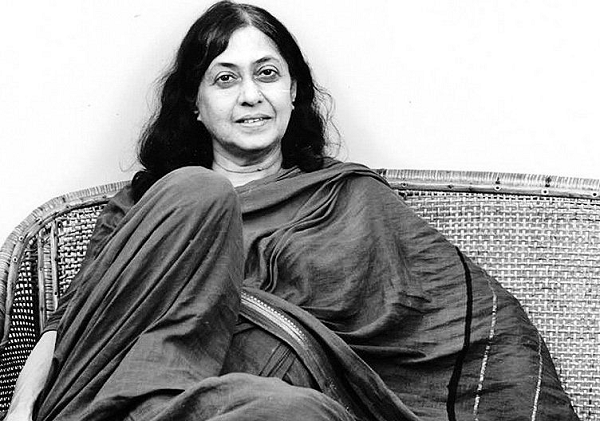
Early Life & Childhood
Kamala Das was born on March 31, 1934, in Punnayurkulam, Ponnani Taluk, Malabar District, British India. She was the daughter of Nalapat Balamani Amma, a well-known Malayali poet, and V. M. Nair, managing editor of the widely read Malayalam newspaper Mathrubhumi.
She spent her early years alternating between Punnayurkulam, the ancestral home of the Nalapat family, and Calcutta, where her father worked as a senior executive for Walford Transport Company, which marketed Bentley and Rolls-Royce cars.
Kamala Das was a talented writer like her mother, Balamani Amma. She developed a passion for poetry at a young age due to the influence of her well-known grand uncle, Nalapat Narayana Menon.
She married bank official Madhav Das when she was 15 years old, who supported her desire to write and helped her start producing in both Malayalam and English. The 1960s in Calcutta were a turbulent time for the arts. One of the numerous voices that emerged and began to appear in cult anthologies alongside a generation of Indian English poets was Kamala Das. She wrote all six of her published poetry books in English.
Literary Career
She was renowned for both her English-language poetry and numerous short Malayalam tales. Additionally, Das wrote syndicated columns. Though she famously asserted that "poetry does not sell in our country," readers flocked to her outspoken essays, which spoke openly about everything from politics to women's concerns and child care. Das was a poet who wrote confessionals, and many people have compared his work to that of Anne Sexton and Robert Lowell.
Indian English poetry needed fresh air, and Kamala Das' debut poetry collection, Summer in Calcutta, provided it. She primarily wrote about love, betrayal, and the pain that followed. At a period when Indian poets were still controlled by "19th-century diction, feeling, and romanticized love," Das rejected the security provided by an antiquated, sometimes sterile aestheticism in favor of mind-and-body freedom.
The Malabar town's surroundings and weather are the subjects of the poem "A Hot Noon in Malabar." Despite how uncomfortable it may be for others, she enjoys the heat, dust, and commotion. As a result of her associations with wild men, wild ideas, and wild love, she longed for hot afternoons in Malabar. Das's separation from Malabar is a torment.
Das addresses the irony in mother-daughter relationships and touches on aging, growing up distance, and love in "My Mother at Sixty-Six." Das expresses sympathy for eunuchs in "Dance of Eunuchs," another excellent poem. The writing style is autobiographical. In the sweltering sun, eunuchs dance. The feminine sensitivity is suggested by their attire, cosmetics, and dancing passion. The contrast between their apparent happiness and despair is striking. They cannot even imagine happiness and have no joy in their hearts. Das realizes that her existence is pointless in the poem "A Request." She lives by herself and is surrounded by decaying patterns in her lifeless existence.
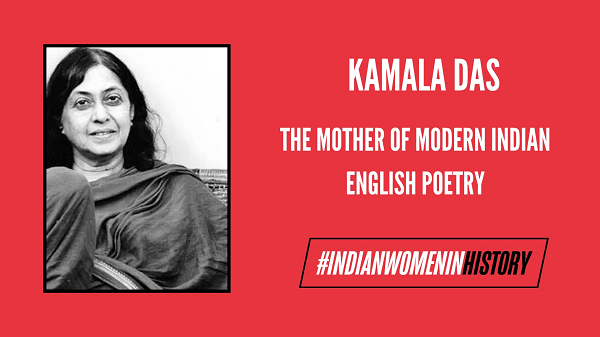
The main thing for which Kamala Das is recognized is her direct and bold expression. Her poetry is characterized by an intense concern for love and the frequent use of confession. Freedom, love, and protection are the three fundamental themes of her poems. She wrote about a wide variety of subjects unrelated to one another, such as the sexual preferences of upper-middle-class women who lived in slums or close to major cities. She also wrote about the tale of a poor elderly servant. Neermathalam Pootha Kalam, one of the few books she authored and one that was well-received by both reviewers and popular readers alike, stands out.
Despite being occasionally viewed as an attention-getter in her formative years, she is today regarded as one of the major influencers of Indian English poetry. She was referred to as "the mother of modern English-Indian poetry" by The Times in 2009.
Her final book, The Kept Woman and Other Stories, which included translations of her short stories, was released after her passing. The articles by Kamala Das that have generated the most controversy are those in which she candidly discusses the limitations placed on women. She is well known for challenging patriarchal norms with her rebellious character.
Personal Life
When she was 15, Kamala married Madhav Das. M. D. Nalapat, Chinen Das, and Jayasurya Das were the three sons of the marriage. After 43 years of marriage, her husband—who subsequently revealed himself to be bisexual and passed away in 1992.
Her one son, Madhav Das Nalapat, is married to Princess Thiruvathira Thirunal Lakshmi Bayi, a member of the Travancore Royal House and the child of Princess Pooyam Thirunal Gouri Parvati Bayi and Sri Chembrol Raja Raja Varma Avargal. He is a geopolitics professor at Manipal University and holds the UNESCO Peace Chair. The Times of India had employed him as a resident editor. Kamala Surayya revealed her intention to marry her Muslim boyfriend after converting to Islam in 1999, but she never married.
Politics
She started the Lok Seva Party, a national political organization, despite never having been politically involved before, to promote so-called secularism and give orphaned moms a place to live. She attempted to run in the 1984 elections for the Indian Parliament but was unsuccessful.
Kamala Das's Conversion to Islam
Kamala Das was born into a traditional Hindu Nair (Nalapat) family with royal history; her title was Nair (Nalappattu). She became a Muslim on December 11, 1999, when she was 65. A younger Islamic lecturer named Sadiq Ali had a relationship with Kamala Das. He persuaded Das to adopt Islam at age 65 as a Member of Parliament for the Muslim League. Das changed her name to Kamala Surayya once he eventually embraced Islam.
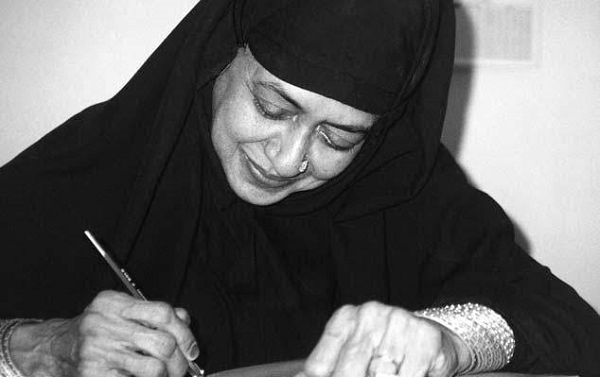
As a member of a Hindu family, Kamala Das' conversion to Islam caused controversy in the literary and social spheres. However, Kamala Das said she enjoyed being covered behind the screen sheets. She fell in love with the Muslim faith upon the passing of her spouse.
Death
At 75, Kamala Das passed away on May 31, 2009, at a hospital in Pune, following a prolonged fight with pneumonia. They took her body to Kerala, where she was born. In Thiruvananthapuram, she was buried at the Palayam Juma Masjid with the deepest respect from the government.
Legacy
The Google Doodle for February 1, 2019, by artist Manjit Thapp honors the body of work she has left behind and offers a glimpse into her captivating universe.
· On February 9, 2018, Kamal launched the biopic Aami about her.
Public Life – Politics, Feminism, and Religion
Ms. Das, a well-known personality in India for many years, is said to have welcomed conflict and controversy. She was praised by feminists for her writings on the mistreatment of women but refused to identify as a feminist. In 1984, she attempted but failed, to win a seat in the Indian Parliament. Subsequently, she gave up on politics. She was born into a well-known Hindu family and changed her name to Kamala Suraiya in 1999 after converting to Islam. Her conversion was widely reported and received condemnation from feminists, Muslims, Hindus, and others for various reasons.
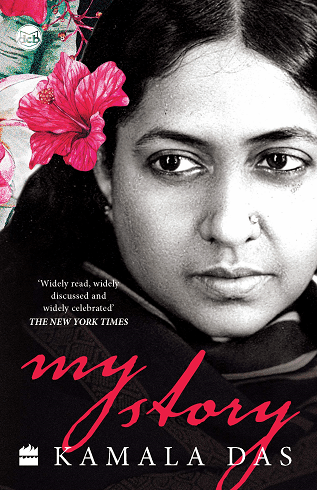
My Story: A Controversial Autobiography
Any Indian woman might be able to relate to Kamala's autobiography's emotional description of her struggles and the pressure to live up to patriarchal ideals in her culture. She was undoubtedly an iconoclast who succeeded in establishing a unique voice through the frankness of her writing.
She received praise and criticism for her autobiography, My Story, first published in Malayalam under Ente Katha due to its frankness on sexuality. Although Kamala subsequently acknowledged using fictitious components in her tale, this didn't stop her from receiving criticism for doing a striptease.
She responded in her signature manner, suggesting that when she removed her skin and broke her bones, maybe people would see "my homeless orphan, an incredibly beautiful soul, deep beneath bone."
Prizes
For her literary contributions, Kamala Das has won several honors, including Asian Poetry Prize
- Kent Award for English Writing from Asian Countries
- Asan World Prize
- Ezhuthachan Award
- Sahitya Academy Award
- Vayalar Award
- Kerala Sahitya Academy Award
- Muttathu Varkey Award
Some Popular Books by Kamala Das
Ente Katha
Kamala Suraiyya wrote a biography titled "Ente Kadha" (My Story) in 1973. (Madhavikutty). She wrote the book after being ill and fearing she would not survive. The book was outspoken and controversial. Once it was released in 1973, her critics began to pursue her, occasionally shocking her readers with their disrespect for convention and speaking her opinions on societal issues—often on its hypocrisy. Das admitted that My Story contained a lot of fabrication, even though she intended it to be an autobiography. The book, My Story was painstakingly translated into English by Suraiyya.
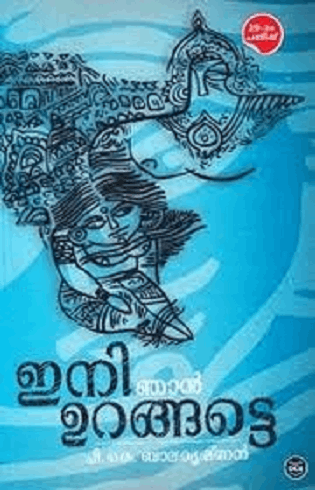
The Old Playhouse and Other Poems
The poem's main image is the titular "Old Playhouse." The speaker finally recognizes that falling in love has transformed her mind into an "Old Playhouse with all its lights shut off." It resembles a sad, abandoned playhouse with no distinct individuality. It has essentially stopped functioning and become inert due to intense physical and emotional demands. She no longer has any worth as a woman in her captivity-filled, suffocating existence.
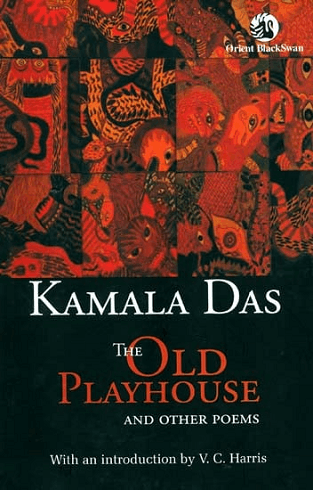
The Descendants
Nihilism is present in the poem "The Descendants" by Kamala Das, which illustrates that there is no prospect of salvation and that degradation is permanent. With the sad words, "We shall never be redeemed or made new," it comes to a close. Kamala Das has been involved with harmless crimes throughout her adolescence.
Since it is only delicious, it has no negative emotional consequences. Pure love is degraded, allowing the soul's fulfillment and emotions to take priority. The poet claims that although love is "substantial," lust is "insubstantial." The calm, emotionless loveliness of the couple cannot be ruined by a relationship devoid of passion.
The poem illustrates how a life devoid of love ultimately results in decadence, destruction, and death. A whole life of sensuality devalues real love, and emotional satisfaction is seldom possible. The gloomy mood of the poem suggests that the only thing that can replace true love is death.
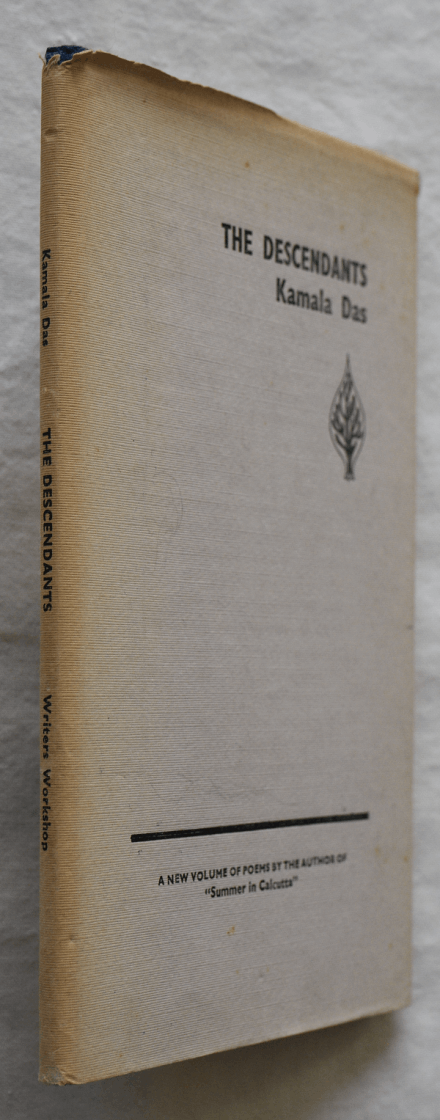
Wages of Love
In this book, Das tells the cynical story of a woman who converted to Islam and is currently hunting for a contract killer for evil purposes. Khushwant Singh's claims on how she supposedly affected the author's candidacy for the Nobel Prize are clarified by another of her works.
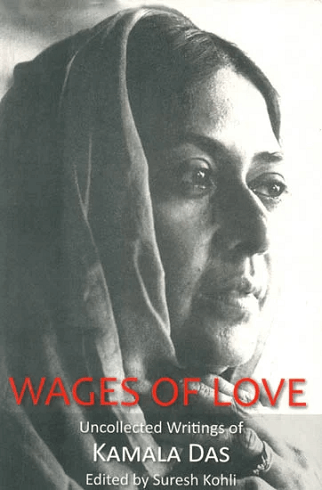
Movies Based On Kamala Das's Stories
A few films with Kamala Das's stories as their basis include the following:
Neermaathalathinte Pookkal
Neermaathalathinte Pookkal is a movie for people who have happy memories of their youth and first love. The movie is a love poem about the basic need that motivates every male. One of the best-known poets of Indo-Anglican descent is Dr. Kamala Das, renowned worldwide for her poetry's stunning beauty and deep creativity. Her short stories are conveyed in a vivid and colorful style and are rich with lyrical imagery and significance.
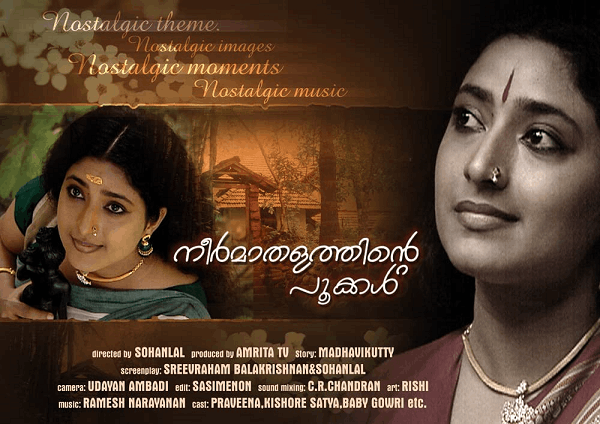
Mazha
Based on the short tale Nashtappetta Neelambari by Madhavikkutty, Lenin Rajendran wrote and directed the 2000 Malayalam movie Mazha. The movie received a South Filmfare Award, a National Film Award, and five Kerala State Film Awards. Mazha tells the story of the romance between her music teacher, Sastrigal, and Bhadra. In the movie's opening scene, a young Bhadra visits Sastrigal to learn music and falls in love with him after hearing him perform in Sivapuram. The story presents Bhadra, the adolescent, as having positive attributes and behaving positively.
Bhadhra fell in love with her music teacher due to her teenage personality and love for his music; Madhura was a gorgeous village with many Tamil Brahmins at the time, including the shasthrikal.
Bhadra's poetry-writing skills start to take off due to his influence. Sastrigal sees Bhadra as a gifted student; he is unaware of her emotions. When Bhadra visits Madurai to find Sastrigal, he discovers that Sastrigal has also suffered greatly. His wife has a mental illness, and the most shocking revelation is that Sastrigal is dying of cancer.
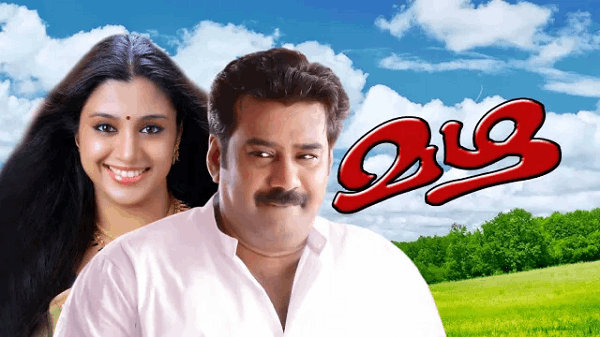
Aami
Aami is a 2018 Malayalam biographical movie from India based on the life of poet and author Kamala Das. The author Madhavikutty is portrayed in Aami, with particular attention paid to her upbringing, family, marital status, devotion to Lord Krishna, and eventual conversion to Islam.
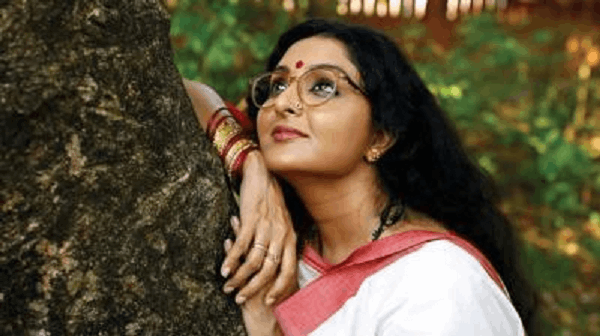
Kadhaveedu
The films were directed by the same person who created the script, updated for a contemporary setting. Rituparna Sengupta, a Bengali actress, made her Malayalam debut by having a major role in this movie.